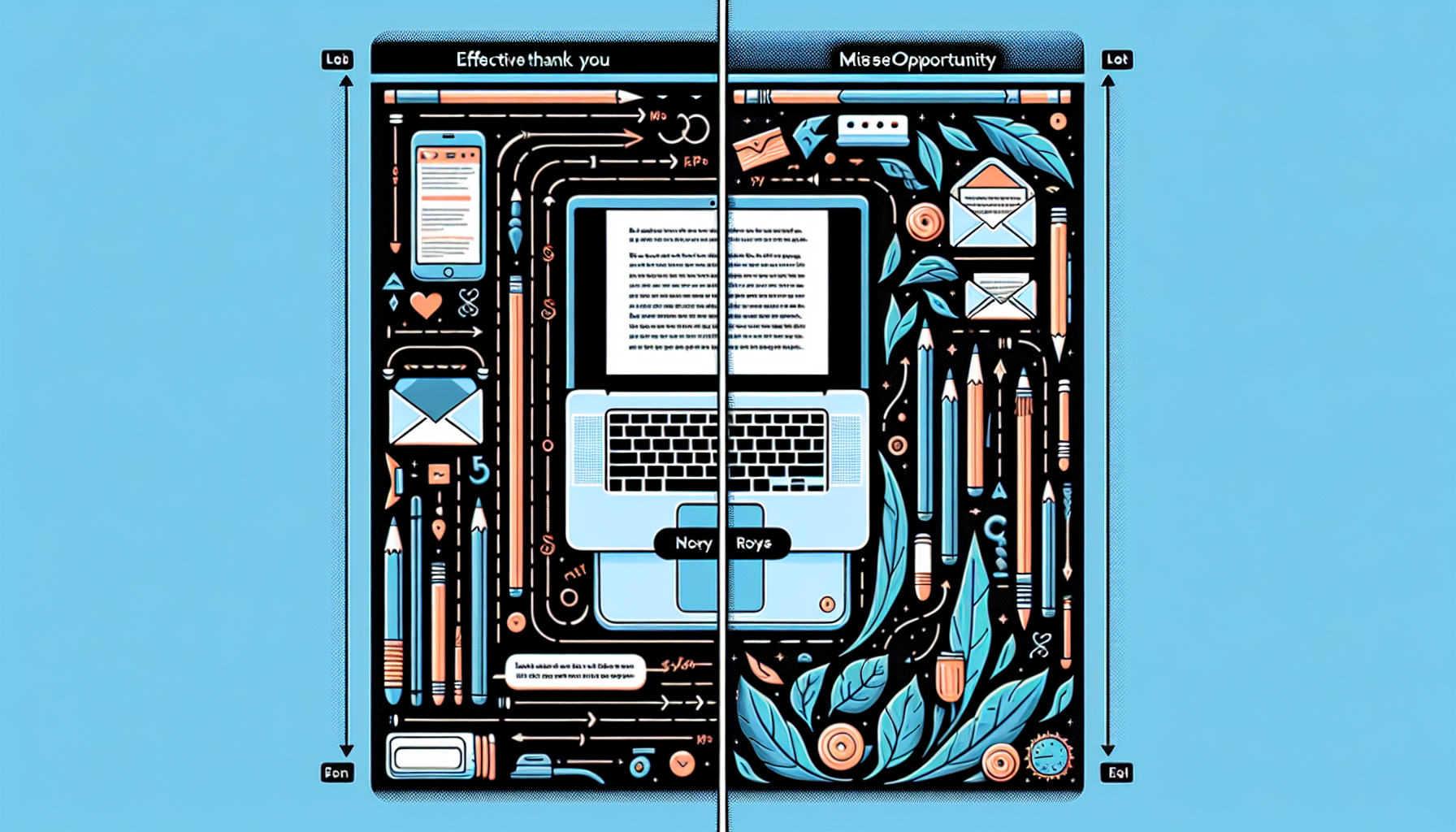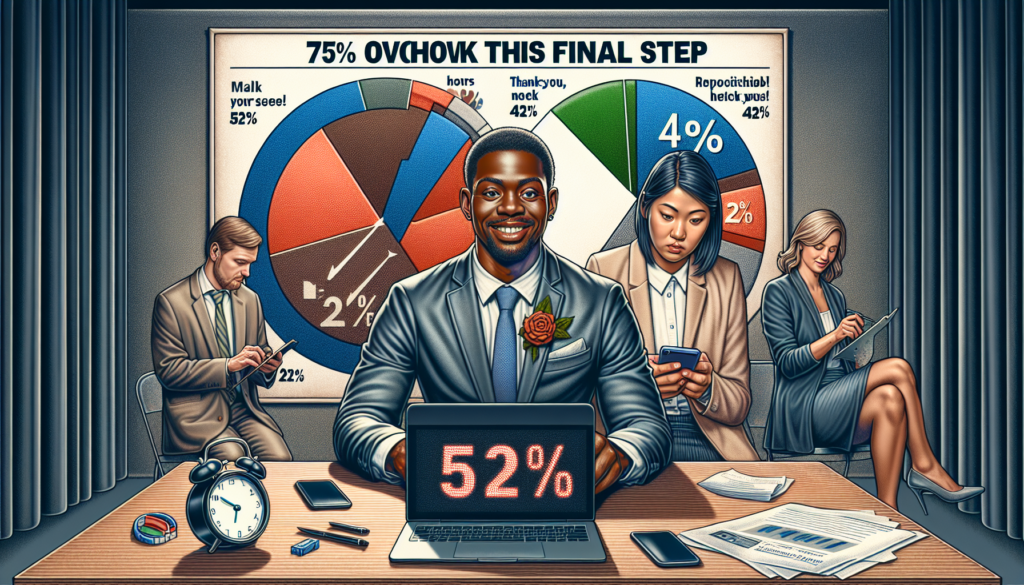Thank You Notes After Job Interviews: The Critical Step 75% of Candidates Miss in 2025
Meta: Discover why thank you notes after job interviews can be your secret weapon in landing the job. Learn the proven formula for writing impactful post-interview thank you emails.
Did you know that a simple thank you note could be the difference between landing your dream job and getting passed over? Here’s a shocking statistic: while 91% of hiring managers say thank you notes matter, only 25% of candidates actually send them! 🤯 I’ve spent years in recruitment, and I can tell you firsthand that this small gesture can make a massive impact. Let’s explore why this often-overlooked step could be your secret advantage in today’s competitive job market.

Why Thank You Notes Matter in Today’s Job Market
You might be wondering, “Do thank you notes really make a difference?” Well, let me tell you, they absolutely do! There’s a whole psychology behind showing gratitude in professional settings. It’s not just about being polite; it’s about making a lasting impression.
Did you know that according to recent studies, 68% of hiring managers say that receiving a thank you note impacts their decision-making process? That’s huge! And it’s not just numbers talking. I’ve spoken with several hiring managers who swear by the power of a well-crafted thank you note.
One recruiter told me, “When I receive a thoughtful thank you note, it shows me that the candidate is truly interested and engaged. It can be the tiebreaker between two equally qualified candidates.”
But here’s the thing: with the rise of digital communication, the expectations for follow-up have changed. It’s not just about sending a note; it’s about sending the right note at the right time.
The Perfect Timing: When to Send Your Thank You Note
So, when exactly should you send that thank you note? Have you heard of the 24-hour rule? It’s pretty simple: aim to send your note within 24 hours of your interview. This shows promptness and keeps you fresh in the interviewer’s mind.
But let’s get even more specific. The best times to send your note are typically between 12 PM and 3 PM. Why? Because that’s when people are usually back from lunch and checking their emails.
Now, what if you’ve missed that 24-hour window? Don’t panic! It’s better to send a late note than no note at all. Just acknowledge the delay and express your continued interest.
Oh, and if you’ve had multiple interviewers, should you send individual notes or one group note? Always go for individual notes. It shows you’ve paid attention to each person’s role and contributions.
Essential Elements of an Effective Thank You Email
Let’s break down what makes a thank you email really shine. First up, the subject line. Keep it simple and clear, something like “Thank You – [Your Name] – [Position]” works well.
In your opening paragraph, express genuine appreciation for the interviewer’s time. Then, reference specific points from your conversation. This shows you were actively listening and engaged.
For example, you might say, “I was particularly excited to learn about the upcoming project in sustainable packaging. My experience in eco-friendly design could contribute significantly to this initiative.”
And don’t forget your closing! End with a professional sign-off that reiterates your interest in the position and the company.
Common Thank You Note Mistakes to Avoid
Now, let’s talk about what not to do. One of the biggest pitfalls is using a generic template. Hiring managers can spot these a mile away, and they’re not impressed.
Another common mistake is length. Too short, and it looks like you didn’t put in effort. Too long, and you risk losing the reader’s attention. Aim for about three to four concise paragraphs.
Watch your tone, too. I once saw a candidate use “Hey there!” as an opening. Needless to say, it didn’t go over well in a corporate setting.
And please, don’t overdo it with follow-ups. One thank you note is great. Five follow-up emails? Not so much.
Thank You Note Templates That Get Results
While we’ve talked about avoiding generic templates, having a solid structure to work from can be helpful. Let’s look at a few templates that have proven effective.
For an entry-level position:
Dear [Interviewer's Name],
Thank you for taking the time to meet with me yesterday regarding the [Position] role. I enjoyed learning more about [Company Name]'s approach to [specific topic discussed] and how the team collaborates on [particular project or task].
My enthusiasm for the position has only grown after our conversation. I believe my skills in [relevant skill] and my experience with [relevant experience] align well with what you're looking for.
I look forward to hearing about the next steps in the process. Please don't hesitate to contact me if you need any additional information.
Best regards,
[Your Name]
For an executive role, panel interview, or virtual interview, the structure remains similar, but you’d tailor the content to reflect the more complex nature of the role or the specific dynamics of the interview format.
Going Above and Beyond: Making Your Thank You Note Stand Out
Want to really make an impact? Let’s talk about going the extra mile. Personalization is key. Reference not just what was discussed, but how it relates to your unique experiences and skills.
Consider adding value post-interview. Did you discuss a challenge the company is facing? Include a brief, thoughtful suggestion or resource that might help.
Now, the age-old question: handwritten or email? In most cases, email is the way to go. It’s quick, professional, and expected in our digital age. However, for certain creative fields or more traditional companies, a handwritten note can be a charming touch. Know your audience!
Lastly, don’t be afraid to follow up on discussion points. If you mentioned a relevant article or case study during your interview, include a link in your thank you note. It shows you’re proactive and genuinely interested in the industry.
Remember, your thank you note is more than just a polite gesture—it’s your last chance to make a great impression before the hiring decision. Make it count!

Conclusion
Wrap up with emphasis on how this simple step can provide a competitive edge, include a clear call to action for implementing these strategies immediately after their next interview.




